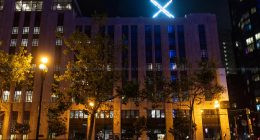About a couple weeks back, Amazon detailed its $500 million investment plan targeting India’s food retail space along with setting up of several brick and mortar stores in the country. In wake of Amazon’s decision, arch-rival Flipkart, announced this Friday that the e-tailer will enter the grocery segment, once again. The announcement was made by Flipkart CEO Kalyan Krishnamurthy at a TiE event in New Delhi, wherein he said,
Yes, we will get into grocery… 80% of units bought in India is grocery… $ 400-600 million is grocery market, so we have to get into it.
In October 2015, Flipkart initiated its very own grocery arm, the not-so-famous ‘Nearby’ as an experiment. The service was provided exclusively in Bangalore via a separate app, which shot to over 100k downloads but failed to clock the expected numbers. Due to poor demand and a severe lack of margins, Flipkart shut it down in February last year. It was even said that since the inception of ‘Nearby,’ it was a topic of debate and controversies for the company.
Witnessing the tragic demise of Flipkart’s earlier attempt, it can be said the decision to renew the said service has been taken under the influence of existing cut-throat competition in the market. By competition, we didn’t only mean Amazon. Germany’s Metro Cash & Carry is also interested in India’s food retail sector. The wholesaler will kick off business with 50 stores, to be opened across India.
Since the Indian Government allows 100% FDI in trading of food products, the international players are constantly looking for new opportunities to penetrate the said space. As for homegrown competitors, Flipkart will face competition from grocery sellers such as Big Basket and Grofers, who have also submitted their FDI plans to enter the food retail segment through brick and mortar stores.
Defining the stability of a grocery business in India, Krishnamurthy said,
There are three models for grocery. One is a daily purchase, the average selling price (ASP) there is very low at about Rs 300-400. Then there is a weekly business model, which is a bit higher. Thankfully, 60-70% of the market is the third one which is monthly basket where average is about over Rs 2,000. With those, it’s a very sustainable business.





